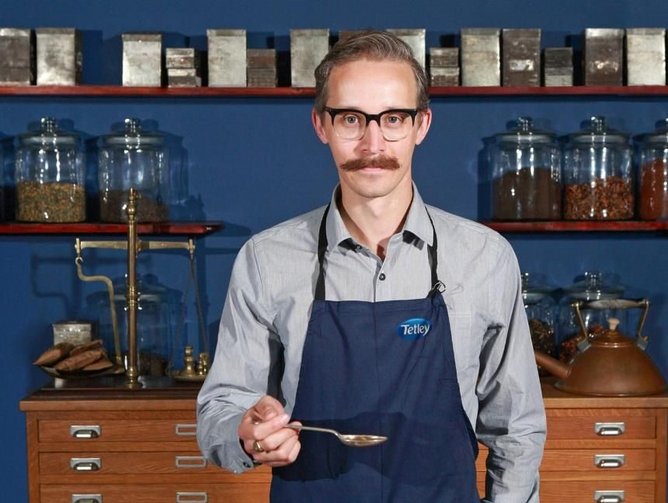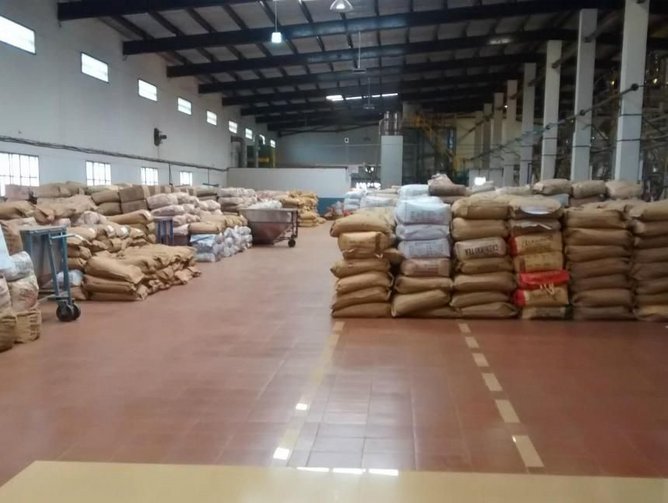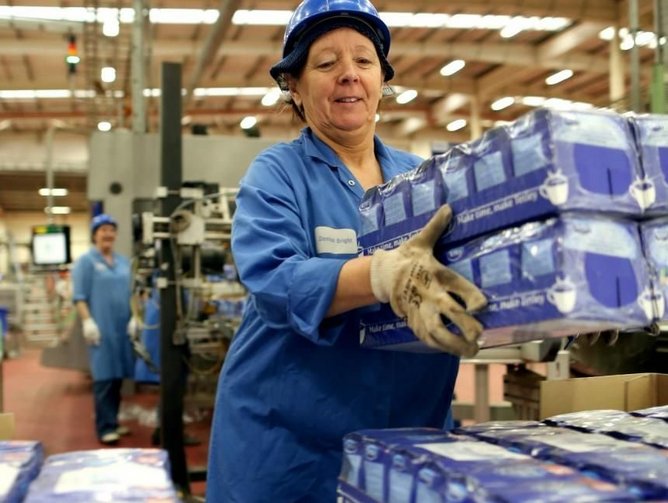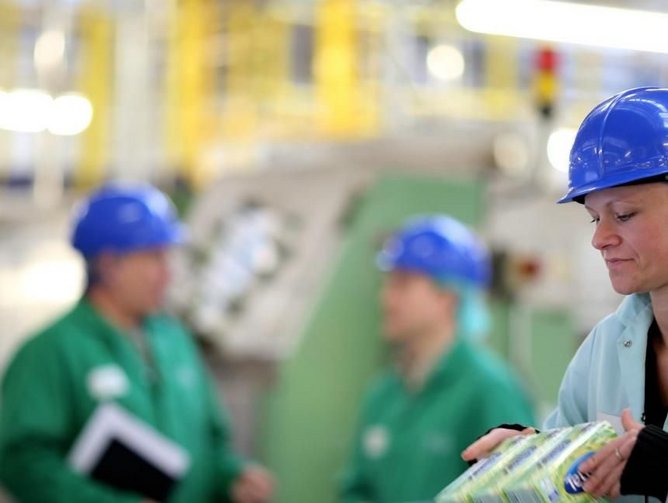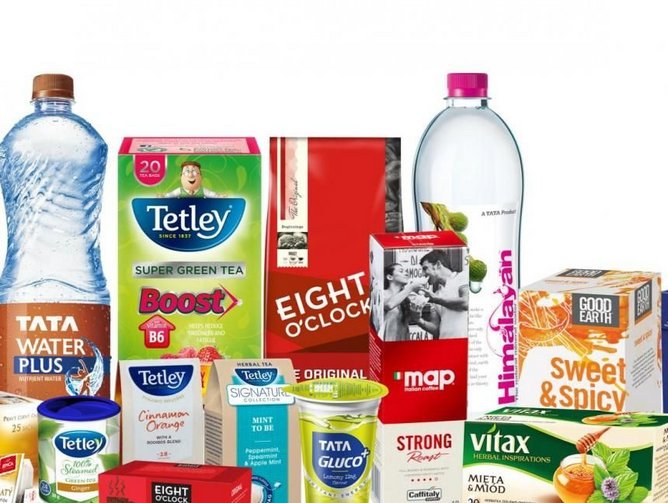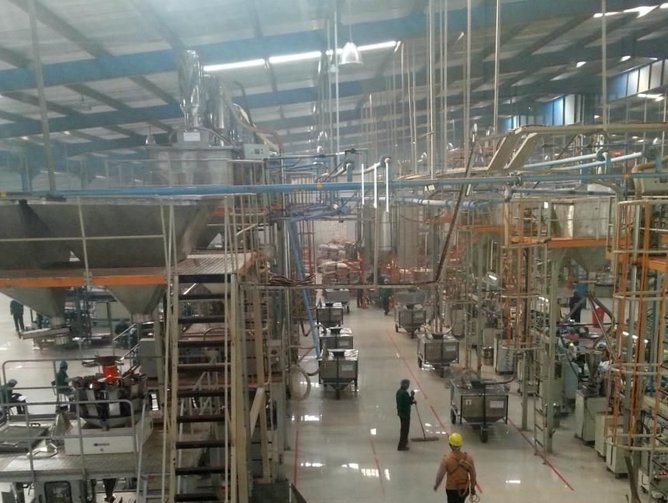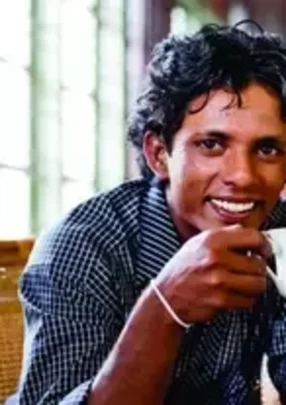Tata Group, since its inception in 1868, has become one of India’s largest multinational conglomerate holding companies, ever-developing founder Jamsetji Tata’s 148-year-old vision. Tata Global Beverages has been a part of the group since 1960, and has seen some of the industry’s most significant drink innovations within its company umbrella.
Global Beverages is a tea, coffee, and water company, which counts Tata Tea, Tetley, Teapigs, and Eight O’Clock Coffee as some of its biggest brands. Around 250 million servings of its products are consumed every day, with a strong brand presence in over 40 countries. Simon King, CPO of Tata Global Beverages, describes the impact of huge global trademarks such as these: “Tata Tea is enormous in India, as is Tetley in the UK and Canada. We have joint ventures in the US and in South Africa. Business in the Middle East is growing quite rapidly. It’s grown largely by acquisition over a period of years, and total revenues are about $1.5 billion including joint ventures.”
Each brand within Tata Group operates independently, and Global Beverages is currently undergoing a procurement transformation headed by King himself: “Previously, each of the brands in each of the countries had looked after their own packaging-buying under each of the individual functions within them. We’re now setting up the global procurement approach so we can look at how we deliver better value to Global Beverages by working with fewer, better suppliers. Now we’re only interacting with suppliers who are able to support our business objectives and growth plans, rather than just whoever happened to have been used historically.”
The company’s procurement overhaul includes a heavy focus on putting in place the right people, the right structure, and the right approach to logistics: “What we’ve got is a regionally-placed but category-led matrix structure,” King explains. “There are teams placed in each of our geographies, and each one has a head of procurement. Every other member of each team will also take a global lead in a particular area of spend; a head of logistics, a head of marketing, of packaging, and so on. That way we can drive a standard strategy and way of operating across our business.”
This standardised method of operation has ensured that Global Beverages maintains great communication with both stakeholder and consumer groups. It allows the company to discover and establish best practice within each region, and implement it wherever appropriate. So how does King manage a supply chain of Global Beverages’s scale?
“Because it wasn’t attempted before this overhaul, we hadn’t been able to test it,” he explains. “First we had to look at establishing exactly what we spend. How much? On what? With whom? What are the contractual positions? We’re in the process of putting in place a standard spend analytics tool across all of the countries, so they’ll be able to take feeds from all the ERP systems and feed that into our own tool.
“So where is the business going in each category? What do our stakeholders need from their suppliers and their supply chains? We use the knowledge of different teams to measure how we should actually be going about sourcing in that particular area, so that spend is as effective as possible. Then we know what is going on in the broader marketplace. It’s important to liaise with the teams on what we should be doing to optimise that spend and deliver sustainable value to the business.”
The company has a three year plan in place at every step of the supply chain, ensuring its methods are optimised by 2019: “Quarter one is about understanding and updating knowledge of our processes and the requirements of the market,” says King. “Quarter two is about refreshing the three year plan, quarter three is about taking the first year of the plan, turning it into the annual business plan and getting it aligned with the business, and quarter four is for focussing on those initiatives and making sure we deliver them.”
Global Beverages is in the process of perfecting the business-wide ERP systems which will streamline the company yet further. King is in the final stages of switching from outdated Excel spreadsheets and pivot tables, negotiating with potential lenders to put the new spend analysis tool in place.
“We’re also putting a central contract management tool in place,” King says, “because it’s very difficult to keep on track when there are multiple legal entities and multiple geographies involved, so this will allow us to have all our standard terms and conditions held on that system, with the ability to edit as required.
“All of this is automatic and can be built into our three year planning process. There’s no way we can keep a tab on our contracts without a management tool, and much of the Tata Group is owned by charitable trusts, so we need to maintain that ethical focus with these new IT processes.”
Tata’s strong sense of ethics extends throughout its operations, with a code of conduct that suppliers and 3,000-strong employee base alike are expected to adhere to, ensuring only the best and most dedicated team: “In India particularly Tata is a hugely powerful brand, and people are delighted and proud to work within the group,” says King. “They understand the ethical element and what it stands for. It’s a huge part of what impresses people about the business, and it’s one of the reasons I joined, as well as the charitable element, the great work Tata does, and the strength of the brand.
“There isn’t the same level of awareness globally as there is in India, and I’m doing my small part to raise that awareness because I think it’s a genuinely impressive organisation with lots of fantastic ideals. Lots of businesses talk about values but it’s not always as embedded as it is for us. Tata Group lives up to its values.”
